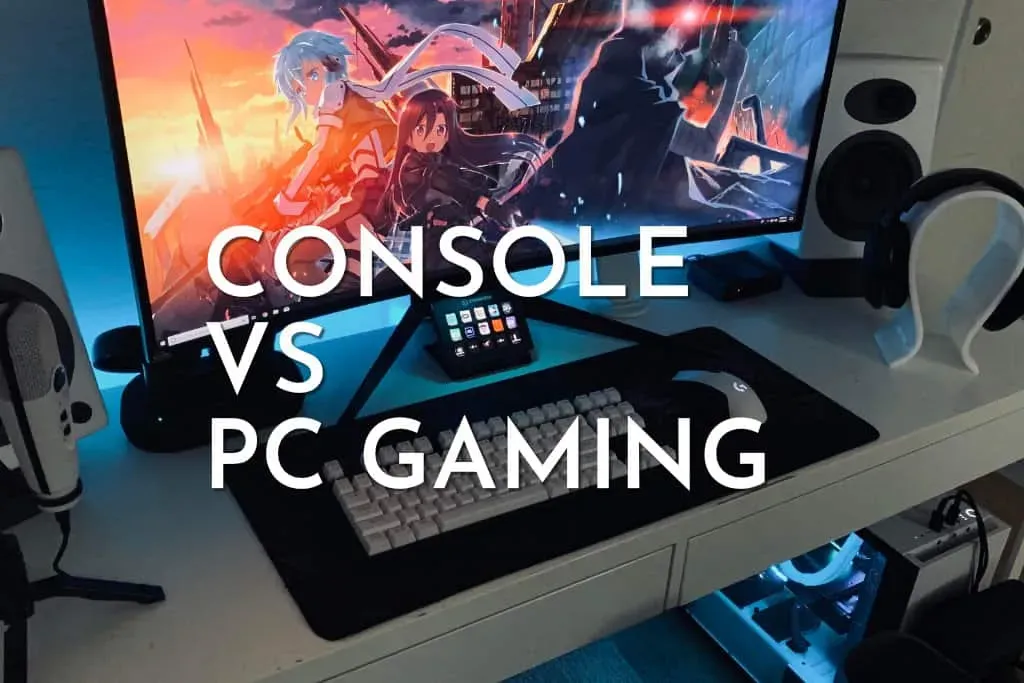PC vs Console Gaming is a topic that dominates debates among players who are building their dream setup, weighing the lure of raw performance against the simplicity of living-room tech, and imagining how each choice will shape hours of play, customization, and immersion. When you zoom out to the big picture, factors like gaming performance, upgradability, exclusive games, and game library matter as much as sticker price, room layout, and how you actually intend to use the system—whether it will live near a desk or under a TV. A high-end PC can push higher frame rates and more detailed textures, but it requires careful component selection, ongoing driver maintenance, and periodic upgrades to stay ahead of the latest releases while also accommodating ambitious indie titles and mod-friendly experiences. Consoles, by contrast, emphasize simplicity, reliability, and a tightly integrated ecosystem that delivers a fast setup, stable performance, and a curated lineup of exclusives that motivates players to stay within a single hardware family. Ultimately, your decision hinges on your priorities, budget, and whether you value the malleability of a PC build or the plug-and-play appeal of a console, with room for a hybrid approach if you want the best of both worlds.
Another way to frame the choice is to compare a desktop rig designed for maximum customization with a living-room oriented machine built for streamlined, plug-and-play gaming. Viewed through the lens of hardware platforms and ecosystem dynamics, the debate shifts to upgrade paths, peripheral support, and how developers optimize titles for different architectures. When you map terms like game catalogs, exclusive releases, and community-driven content to your own playstyle, the decision becomes less about labels and more about which setup matches your pace, space, and long-term gaming goals.
PC vs Console Gaming: Performance, Upgradability, and Game Library Considerations
A look at PC vs Console Gaming through the lens of gaming performance shows that a well-built PC can push higher frame rates, resolutions, and fidelity, delivering smoother visuals and quicker responsiveness across demanding titles.
Beyond raw numbers, upgradability is a defining feature of PC gaming. You can swap in a stronger GPU, add memory, or upgrade storage to extend longevity and better match new releases, all while cultivating a diverse game library that includes moddable and indie experiences.
Exclusive Games and Library Breadth: How Accessibility Shapes Your Choice
Exclusive games are a major factor in the appeal of consoles, where publishers curate flagship franchises that aren’t always available on PC. This dynamic helps create a tight, compelling game library that motivates many players to adopt a console for those titles.
On the other side, PC gaming often delivers a broader game library, from massive strategy games to indie gems and mods that extend playtime long after release. Accessibility and ease of entry vary by platform, with consoles offering straightforward setups while PC setups emphasize customization and long-term ownership through digital storefronts.
Frequently Asked Questions
PC vs Console Gaming: Which option offers better gaming performance for demanding titles?
PC vs Console Gaming generally provides higher gaming performance on a well‑spec’d PC, delivering higher frame rates and resolutions (1080p/1440p/4K) with options like ray tracing. Consoles offer optimized, stable performance within a fixed hardware generation. If peak performance and upgradability matter, choose PC; if you want simple, plug‑and‑play reliability, choose a current console. Remember that upgradability lets you extend a PC’s life, while consoles rely on generation refresh cycles.
PC vs Console Gaming: How do exclusive games and game library breadth affect the choice?
Exclusive games are a major factor: consoles often host flagship titles unavailable on PC at launch, while PC gains access later or via ports. The PC game library tends to be broader, including indie and moddable titles with extensive storefront options, whereas consoles offer a curated, optimized lineup ideal for living‑room play. Consider which exclusive games you want, the breadth of the game library, and your preferred purchasing model when deciding.
| Topic | Key Points | |
|---|---|---|
| PC Gaming Pros |
]}]},{ |
{ |
Summary
PC vs Console Gaming sets the stage for a decision shaped by priorities, budget, and how you want to play. PC offers superior performance potential, vast customization, an expansive game library, and upgradability, while consoles deliver simplicity, strong exclusives, predictable pricing, and a polished living room experience. Both paths provide engaging, immersive experiences; the best setup is the one that matches how you want to play, where you game, and what you value most, whether you go all-in on PC gaming or enjoy the convenience of console gaming.



